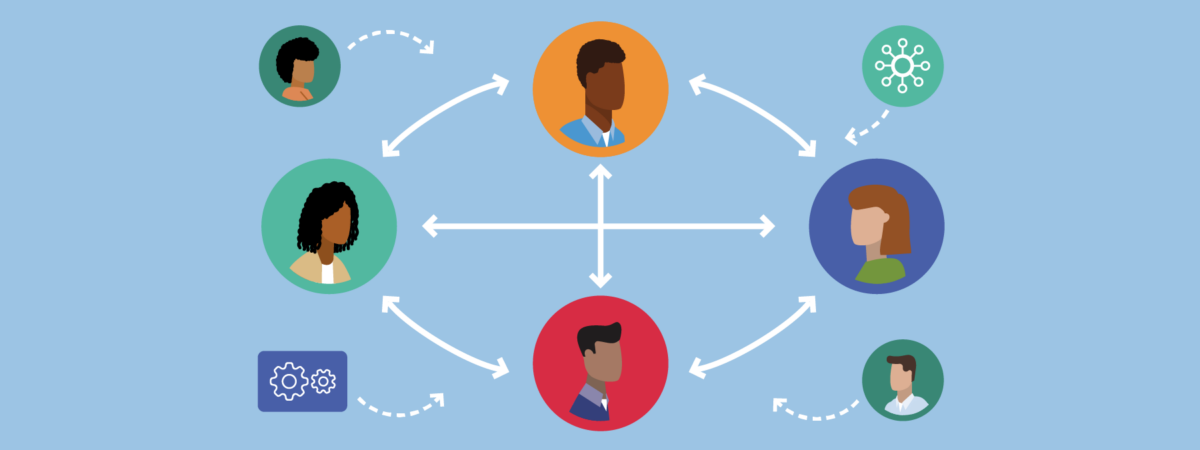
This statement has guided Digital Promise’s research into the design of successful feedback loops over the last two years, as we’ve explored ways that different communities can collaborate to improve education. Whether something as commonplace as curriculum adoption in a district, or as unique as a research hub, considering how parties might contribute to and benefit from their interactions will lead to higher-quality insights shared among participants. Through research and pilots with communities of researchers, practitioners, and edtech product developers, we have identified four principles we believe will promote education innovation and transformation through the creation of better feedback loops.
Find a Facilitator
In our pilot work with research, product, and practice communities, each identified that a dedicated and trusted third-party facilitator would be a welcome addition to any project that worked across their areas of expertise. A facilitator can work across communities and empower them to influence the direction of the work.
Attend to Continuity, Consensus, and Customization
In a design convening where researchers, edtech product developers, and practitioners prototyped cross-community feedback loops, we heard clearly that educators deal with a lack of continuity in the products they use, missing consensus among levels of the school systems in which they work, and insufficient flexibility to build and create for their particular student needs. In response, they suggested that feedback loops should encompass more of their school community, such as parents, administrators, and technology departments, which strengthens the use of learning technology.
Lean into the Tension
Tension in cross-community collaborations is natural, and a result of misalignment between the rules, objectives, and contexts of participants. However, this tension provides an opportunity to innovate and should be approached with curiosity. Our pilot participants identified many tensions between research, product, and practice, such as varying time cycles, capacity to scale and support many students, and long-term sustainability, and were able to design to address them.
Want to know more about feedback loops? Find more resources here:
We’d like to thank the following design convening participants:
We would also like to thank Judi Fusco and Merjike Coenraad for their contributions to the feedback loops research.

We want to hear from you!
Please take this 5-minute survey and help us serve you better.
